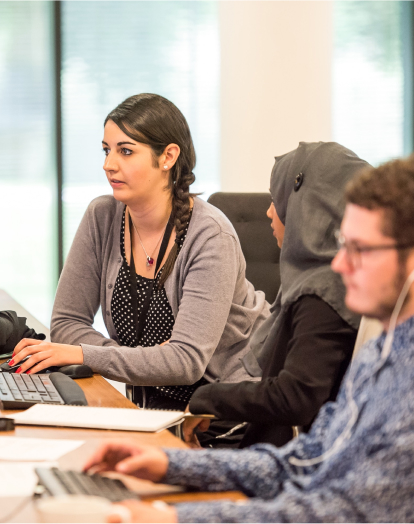



The DARE (Diversities are Reviving Enterprises) project is set in a context where European small and medium-sized enterprises (SMEs) face significant workforce shortages and challenges in harnessing the potential of diverse talent pools. DARE aims to address these issues by promoting diversity and inclusion as a solution. The project seeks to help SMEs tap into underutilized talent across various demographic and skill categories, enhancing their workforce and alleviating labor shortages. Simultaneously, it aims to improve diversity and inclusion in EU workforces, enhancing economic growth, innovation, and societal benefits. Furthermore, DARE aligns with the need to adapt vocational education and training to current labor market needs, fostering more inclusive and effective employment strategies.
European small and medium-sized enterprises (SMEs) are currently facing serious workforce shortages and difficulty in tapping into diverse talent pools. Despite the clear benefits of workforce diversity in driving innovation and economic growth, many SMEs struggle to incorporate effective diversity and inclusion strategies. This challenge is compounded by systemic and individual biases related to age, race, ethnicity, gender, religion, disability, socioeconomic background, and sexual orientation, which often prevent a more comprehensive recruitment approach.
In addition, vocational education and training (VET) systems are not always aligned with the current labor market needs, making it challenging to prepare and place potential employees, especially high-skilled migrant women and previously "invisible" talent pools, into fitting roles within SMEs.
Therefore, there's a pressing need for innovative solutions, like the DARE project, which can bridge these gaps. By promoting diversity and inclusion, the project aims to relieve SME labor market shortages, enhance economic growth, and contribute to a more equitable and inclusive European economy.
The DARE project aims to boost diversity and inclusion in European SMEs, turning these aspects into opportunities for economic growth and innovation. The project plans to create resources for SMEs to better understand and leverage the benefits of diverse workforces. It seeks to innovate vocational education and training, addressing labour shortages by tapping into "invisible" talent pools, such as highly skilled immigrants. By promoting fair recruitment and retention practices, DARE aims to improve workplace equality, ultimately contributing to a more inclusive and dynamic European economy.







Vocational Education and Training (VET) Organisations: These include institutions that provide vocational education and training services.

VET Professionals: Individuals who deliver vocational education and training to learners.

SME Support Structures: Entities such as Chambers of Commerce, SME Networks, and Technology Centers that provide resources and . assistance to SMEs.

Labour Market Actors: These could be recruiters, job placement agencies, or workforce development agencies involved in the hiring and placement of workers.

SMEs (Owner/Manager/Key Staff): Small and medium-sized enterprises that can benefit from understanding and implementing diversity and inclusion practices.

Employees: Especially those from marginalized, excluded, or discriminated groups, who would directly and indirectly benefit from more inclusive and diverse workplaces.